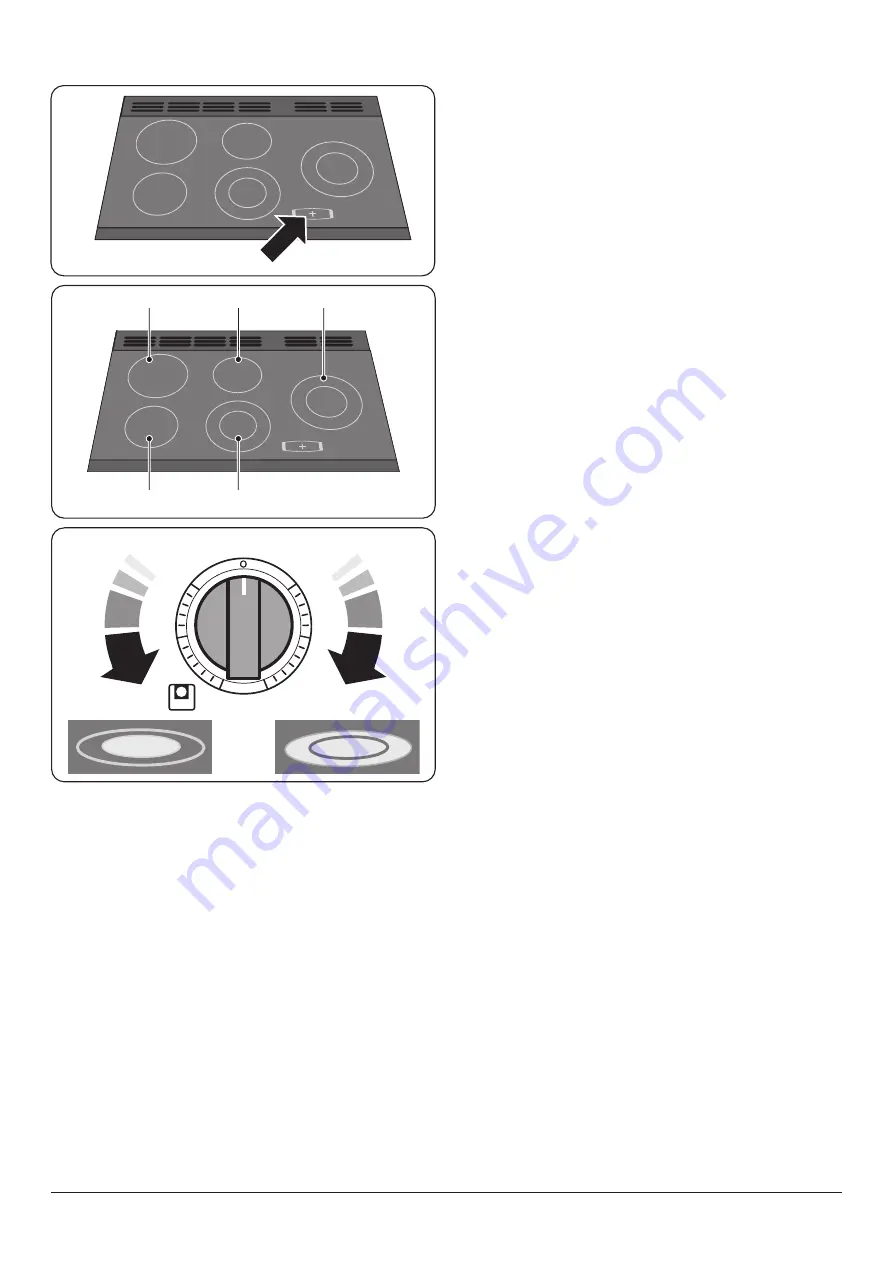
8
ArtNo. 312-0012 - 90 Ceramic hob ratings
1.65 kW
1.1 kW
2.02 kW
1.1 kW
1.56 kW
Zone 2
Zone 1
Zone 3
Zone 4
Zone 5
ArtNo.312-0013 - 90 ceramic heat indicator light
when cold. If you hold a ruler across the bottom you will see
). When they heat up the
metal expands and lies flat on the cooking surface.
Make sure that the base of the pan is clean and dry to prevent
any residue burning onto the hob panel. This also helps
prevent scratches and deposits.
ALWAYS
use pans that are the same size as (or slightly larger
than) the areas marked on the hob top (
). Using
smaller pans wastes heat, and any spillage will be burnt on.
Using a lid will help the contents boil more quickly.
n
Take care when placing hot lids onto the hob
surface. Lids that have been covering boiling or
steaming foods can ‘stick’ to the ceramic glass.
Should this occur, DO NOT attempt to lift the lid
off the hotplate: this may damage the hob surface.
Instead, slide the lid to the edge of the hob surface
and remove.
There are indicator lights for each of the cooking areas
). The lights come on when a hob control is turned on
and stays lit while the surface cools.
n
ALWAYS take care before touching the surface, even
when the hob is turned off – it may be hotter than
you think.
The ratings of the different cooking areas are shown in
The areas marked with two concentric circles have an inner
and an outer element. Rotate the control knob clockwise to
heat the whole area for larger pans; turn it counter-clockwise
to just heat the inner part for smaller pans (
).
When cooking on the hob, you may see the hob area you
are using switch off and on: this is caused by a safety device
that limits the temperature of the hob. This is quite normal,
especially when cooking at high temperatures. If it happens
a lot with a particular pan, however, it may mean the pan is
not suitable – perhaps too small or too uneven – for a ceramic
hob.
For best results, preheat a covered serving dish for 10 minutes
before adding food to it.
Use only heat-resistant dishes.
1
2
3
1
2
3
Fig. 2.5
Fig. 2.6
Fig. 2.7













































